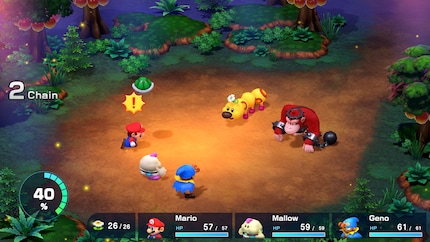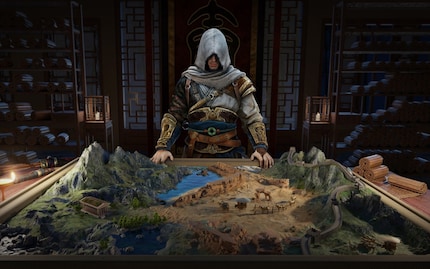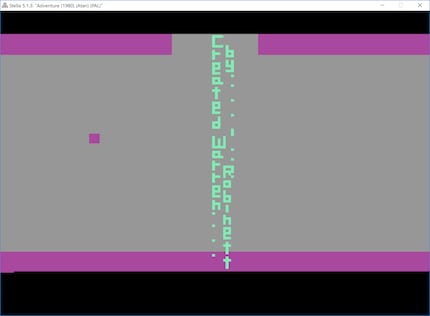
Background information
The history of "Donkey Kong": Highs and lows of Nintendo's favourite gorilla over the last 44 years
by Cassie Mammone

What do the Super Mario RPG remake, Assassin’s Creed Jade and Another Code: Recollection have in common? The studios behind them are kept secret. I’ll explain why, and the consequences of doing this.
As Atari’s dominance slowly waned and more and more developers founded their own studios, games were also appropriately credited.
Such secrecy primarily harms studios, or more precisely, the people who create games. We can only hope that this trend won’t continue.
As a child, I wasn't allowed to have any consoles. It was only with the arrival of the family's 486 PC that the magical world of gaming opened up to me. Today, I'm overcompensating accordingly. Only a lack of time and money prevents me from trying out every game there is and decorating my shelf with rare retro consoles.
Interesting facts about products, behind-the-scenes looks at manufacturers and deep-dives on interesting people.
Show all
Background information
by Cassie Mammone

Background information
by Cassie Mammone

Background information
by Philipp Rüegg
The games industry is a secretive one. While Hollywood studios like Lucasfilm are happy to share their roadmap for the next decade, game studios and publishers usually keep a low profile. This has improved somewhat in recent years. Yet simultaneously it’s obvious that Nintendo, for example, has been working on a new 3D Mario for years. However, nothing is officially known. Even the names of some developer studios are being kept under wraps now.
If you look at the trailer for Super Mario RPG, there’s no indication of who developed the remake. Square Enix and Nintendo are listed as publishers, but no studio. When asked by various outlets such as IGN, Square Enix and Nintendo gave no answer in advance as to who is developing the game. There’s no studio logo on starting the game. The name ArtePiazza only came to light when an attentive fan read through the small print in the terms and conditions of a pre-order page. Otherwise this information would’ve only been available in the end credits of the game. A time when most outlets have long since published their content about the game. Reviewers were prohibited by embargo from mentioning the studio behind Super Mario RPG in advance.

Another Code: Recollection is another recent example of a Nintendo game where the studio responsible was unknown for ages. Again, we now know thanks to data miners who came across the name Arc System Works while searching through the demo. That was last December. The game was presented in September. Nintendo’s PR agency confirmed the studio when I asked them.

Nintendo isn’t alone in this approach. Sega presented five remakes at the Game Awards ). Apart from a bold statement by CEO Shuji Utsumi that the original creators were involved, nothing is known about the developers. When asked by renowned journalist Stephen Totilo, the answer was: «nothing to announce at this time».
Ubisoft, who usually communicate openly who develops their games, are also keeping a low profile with Assassin’s Creed Jade. The upcoming mobile game takes the series to China. It’s already been played extensively. Apart from the fact that megacorporation Tencent, or Level Infinite, is publishing the game, no information about development is known. At a quarterly meeting for investors in July, the question also arose as to who was developing the game. Ubisoft CFO Frederick Duguet simply said they’d reveal the name of the studio at a later date. To date, this hasn’t ever happened.

Why this secrecy? Many suspect that publishers want more control. If a game only says Nintendo, Sega or Ubisoft on the packaging, you’ll also associate the games with these companies. What’s more, publishers can change studios at any time without players finding out or even caring. This approach isn’t new, but is currently experiencing a renaissance. In the days of Atari, when the industry was in its formative stages, there was a ban on listing the names of developers. This was done to prevent the competition from poaching talent. Warren Robinett famously responded to this with the first ever Easter Egg. In his game Adventure, he hid the message «Created by Warren Robinett» in a secret room.

Today, fortunately, it’s rare that names of developers are deleted from the credits or incorrectly listed. But this studio secrecy is just as devastating. In addition to the aforementioned lack of influence, one consequence is that developers have no references to show when looking for a job. As long as it hasn’t been made public who’s developing Assassin’s Creed Jade, designers in question aren’t allowed to write anything about it on their CVs. This also applies to studios that can stand by their games but (have to) keep the announcement under wraps. Which, as we know, can take many years.

UE Boom 4
15 h, Rechargeable battery operated